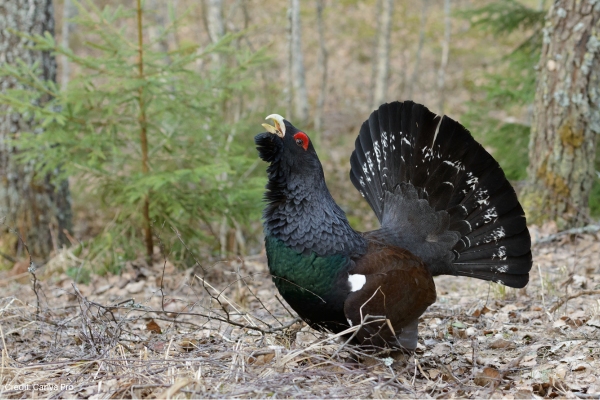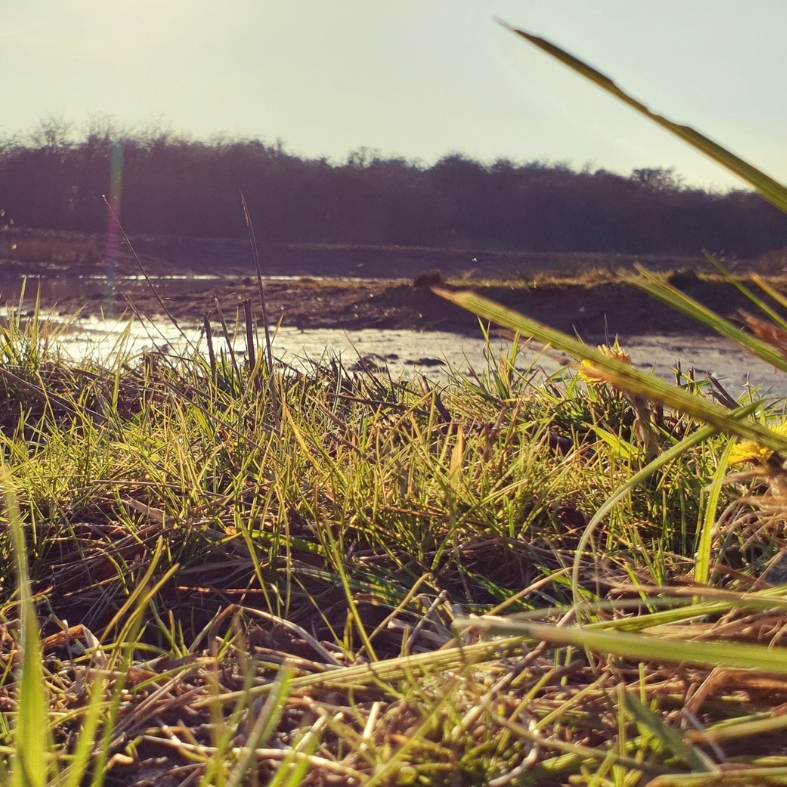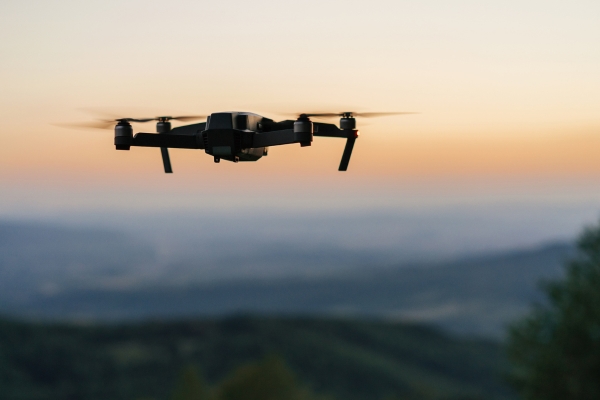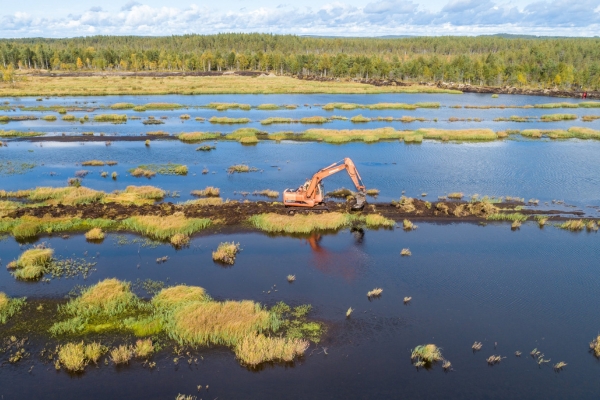
Emergency action plan for capercaillie recovery gathers pace
The Capercaillie Emergency Plan, which aims to reverse the fortunes of the iconic Scottish bird, has been launched in Scotland.
Get information on the legal shooting season for mammals and birds in the UK.
Apply for funding for your project or make a donation today
Comprehensive information and advice from our specialist firearms team.
Everything you need to know about shotgun, rifle and airgun ammunition.
Find our up-to-date information, advice and links to government resources.
Everything you need to know on firearms law and licensing.
All the latest news and advice on general licences and how they affect you.


Ian Danby outlines the opportunities – and potential threats – for shooting presented by Natural England’s State of Natural Capital Report.
Natural England (NE) recently released its much-anticipated State of Natural Capital Report, providing a comprehensive overview of the state of natural resources across England.
The report is a crucial tool for understanding how to protect and enhance our ecosystems, and it presents both opportunities and challenges for the shooting sector.
While we have concerns that NE erroneously regard grouse moor management as a reason for the reduction in the area of upland peatlands when the reverse is true, the report largely highlights significant opportunities for shooting in areas such as woodlands, marine and coastal margins, and enclosed farmlands. Let’s get stuck in.
The State of Natural Capital Report identifies eight key
ecosystem asset types across England and considers the top five reasons for
their loss and the consequential risks to six key policy areas.
The habitats are:
Among these, shooting has a meaningful impact on all but urban and semi-natural grasslands. The report emphasises the need for investment in natural capital to mitigate biodiversity risks and support a sustainable future.
If we jump to the six critical policy areas, the shooting community, provides benefits for them all.
Economic resilience and growth
Shooting plays a significant role in the rural economy, contributing a substantial £2.9 billion in Gross Value Added (GVA) annually.
Shooting is inherently tied to sustainable land use and habitat improvements, which benefits not only biodiversity but also the communities who live and work around these areas. Promoting the benefits of sustainable shooting conducted according to best practice is crucial when engaging with government stakeholders.
Shooting and net zero: contribution to climate action
BASC’s natural capital assessment revealed shooting contributes £227 million worth of carbon sequestration annually through creation and management of woodland, saltmarsh, and wetlands and through carbon saved due to deer and grey squirrel management. These areas, managed through shooting activities, serve as crucial carbon sinks, storing carbon and mitigating climate change.
Moreover, recent research suggests that well-managed grouse moors can contribute to increased carbon storage, further supporting the role of shooting in helping to mitigate climate risks.
Shooting and climate adaptation
The report emphasises the importance of creating and maintaining habitat networks to support climate adaptation.
Shooting plays a role here as well; for example, land used for pheasant shooting has a higher woodland cover than land without: 15 per cent woodland cover compared with 13.5 per cent of the combined area of woodland and single tree cover without game shooting. It also helps increase habitat connectivity through initiatives such as hedgerow planting, creating corridors for wildlife to thrive in the face of climate change.
Food security
Shooting also contributes to England’s food security by harvesting wild game, notably venison and gamebirds, worth £25 million annually. Furthermore, shooting helps limit crop damage and forestry impacts, saving English farmers and the forestry sector an estimated £37 million and £4 million annually, respectively.
Health and wellbeing benefits
One of the more overlooked benefits of shooting is its positive impact on health and wellbeing. Individuals who participate in shooting are more likely to be physically active and experience reduced levels of loneliness compared to the general public. The resulting positive effects on mental and physical health save the NHS and local authorities £21 million annually.
Highlighting this contribution supports the case for shooting as a public good that helps reduce healthcare costs while fostering community cohesion.
Water security and flood mitigation
Shooting activities also provide benefits for water security. Managed woodlands linked to shooting activities store up to 19 million cubic meters of water, reducing flood risk by slowing down water movement through landscapes. These benefits further illustrate the positive environmental contributions that can come from sustainable shooting practices.
Let’s not forget also the miles of drainage channels (grips), put in under previous government policy to increase farmed areas, that have been blocked on grouse moors to keep their peatlands wet.
The NE report identifies three key actions to restore and maintain natural capital:
For the shooting community, these actions provide both opportunities and challenges. On the opportunity side, activities like pheasant shooting, deer, and grey squirrel management can enhance nature-rich forestry assets and contribute to managing natural carbon sinks. In addition, shooting organisations can help maintain saltmarshes and sand dunes in response to sea level rise, creating a nature recovery network on a large scale.
However, challenges do exist, particularly around grouse moor management. It will be essential for the shooting community to demonstrate that their practices are consistent with responsible peatland management and reduce environmental risks.
Moreover, we must address concerns around pollution, where it is relevant to us, such as our campaign to move away from lead and plastic wads in ammunition.
NE has positioned this report as the start of a broader conversation about the future of natural capital in England. They invite stakeholders, including the shooting community, to engage in shaping policies that can tackle the climate and biodiversity crisis.
This is an opportunity for proactive collaboration, where data from the shooting community’s natural capital assessments can be used to influence decision-making and policy directions.
While the challenge NE’s State of Natural Capital Report sets all of society is enormous, it is one of opportunity for shooting.
Our challenge as people who shoot is to keep creating and maintaining nature-rich habitat. It is also to keep managing species where they cause conflicts and to keep enjoying and sharing the wild food we harvest. Lastly it is to keep providing evidence that we are doing this, so decision-makers realise the value the public gain from policies that support sustainable shooting.
By aligning shooting activities with government priorities, promoting their positive impact on health, climate, and the economy, and actively engaging in policy discussions, the shooting community can help safeguard both its future and England’s natural capital.


The Capercaillie Emergency Plan, which aims to reverse the fortunes of the iconic Scottish bird, has been launched in Scotland.

Dr Cat McNicol discusses the impact that rapid advances in technology are having on research centred around sustainable shooting and conservation.

The BASC Wildlife Fund charity is seeking new individuals to join its board of trustees.